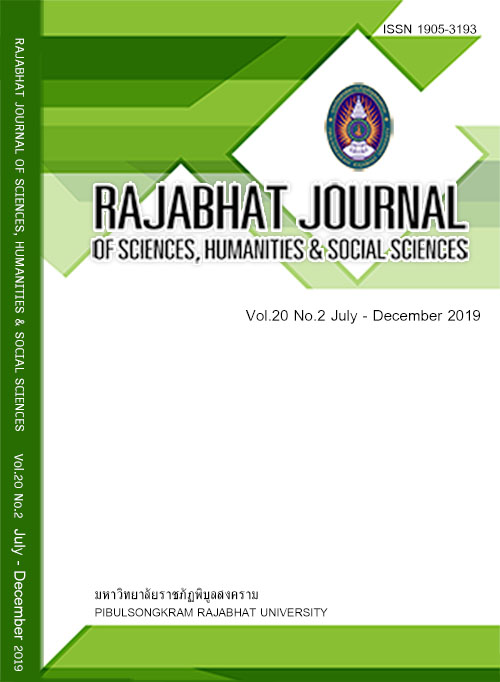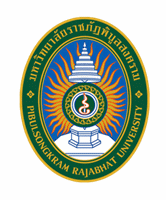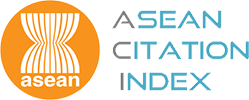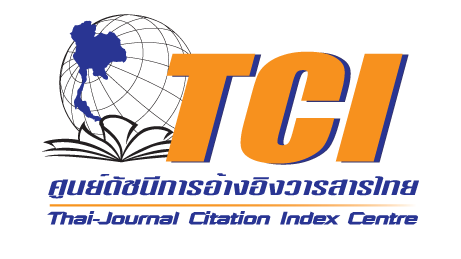EFFECT OF GROUP DYNAMIC PROGRAM ON MATHAYOMSUKSA 3 STUDENRS’ FUTURE ORIENTED SELF-CONTROL OF SIRIMATTHEVI SCHOOL, PHAN, CHIANGRAI
-
Keywords:
group dynamic program, future orientated self-control, mathayonsuksa studentAbstract
The purpose of this research was to study the effects of group dynamic program on mathayonsuksa 3 students’ future orientated self-control of Sirimasthevi school, Phan, Chiangrai. This research was designed by using a quasi-experimental research method included an experimental group and a control group. The evaluation was divided into 3 periods: pre-experimental, post-experimental, and monitoring. The samples were 30 students of mathayomsuksa 3 chosen by using a purposive sampling method. They were divided into 2 groups which were 15 students of the experimental group and 15 students of the control group. The experimental group attended the group dynamic program with 3 sessions a week within 4 weeks. It took 50-60 minutes per session. The research instruments consisted of questionnaires on future orientated self-control and group dynamic programs. The statistics used to analyze the data were frequency, percentage, mean, standard deviation, t-test dependent, and One-Way Repeated Measure ANOVA. The results revealed that the future orientated self-control of the experimental group after attending the group dynamic program was significantly higher at the level of .05. The future orientated self-control of the experimental group after attending the group was significantly higher than the control group at the level of .05. The future orientated self-control in the pre- experimental, the post-experimental, and the monitoring of the experimental group was significantly different at the level of .05.
References
Akarawongkorn P. The effect of Reality Group Counseling on Sexual Adjustment of Lower Secondary School Students, Counseling Psychology Faculty of Education, Burapa university; 2016.
Chaiphan K. Group Process. Bangkok: Odean Store; 2006.
Chanupakara S. Management of Catholic School in Thailand beyond Catholic School Identity. Doctor of Philosophy (Educational Administration), Silpakorn University; 2013.
Committee of Education Chiang Mai Diocese. Teacher and Education Personal Manual; 2013.
Doungkong S. Effects of an Existential Counseling Group on Future Orientation Score and Rehabilitation of Drug Addicted People in Songkhla Province, Counseling Psychology Faculty of Education, Thaksin University; 2018.
Euakittikul S. The Effect of Group Activities On Reducing Aggressive Behavior of Children In Slum Communities. Master of Science Thesis, Mahidol University; 2011.
Ket-um P. Psychological Characteristics Related Buddhism’s Morality Behavior of Juvenile on Remand Home. Master of Science (Applied Behavioral Science Research), Srinakharinwirot University; 2007.
Khampho N. Social Factors and Psychological Characteristics Related to Resisting Behavior to Football Gambling of Secondary School Students. Master of Science (Applied Behavioral Science Research), Srinakharinwirot University; 2007.
Khoktrakul S. Educational Psychology. (4th edition). Bangkok: Publishers Chulalongkorn University; 2001.
Lanboonmee S. Factors Related to Perceived Self-awareness of Prathomsuksa six Students. Master of Education (Educational Psychology and Guidance), Mahasarakham University; 2009.
Locke EA. and Latham GP. A Theory of Goal Setting & Task Performance. New Jersey: Prentice Hall; 1990.
Matayarak P. The Effect of Group Process Program for Developing the Adolescent’s Empathy. Master of Education (Educational Psychology and Counseling), Khon Kaen University; 2012.
Mischel, W. Process in Delay of Gratification in Advance in Experimental Social Psychology. New York: Academic Press; 1974.
National Children and Youth Development Committee. National Child and Youth Development Plan 2012-2016.
Bangkok: Agricultural Cooperative Printing Community of Thailand; 2011.
National Children and Youth Development Committee. National Child and Youth Development Plan 2017-2021. Bangkok: JS. Printing; 2017.
Phanthumnavin D, Chuchom O, Loy S. et al. Ethical Tree Theory: Research and Development of Individuals. Bangkok: Project to promote academic documents National Institute of Development Administration; 1987.
Phanthumnavin D. Ethical Tree Theory: Research and Development of Individuals. Bangkok: Project to promote academic documents National Institute of Development Administration; 1995.
Pholpasee K. The Effect of Participatory Learning Program on Developing Futrue Orientation of Mathayomsuksa 1 Students at Mueangnakhonnayok School, Changwat Nakhon Nayok. Master of Arts (Educational Psychology and Guidance), Kasetsart University; 2004.
Phucharoen S. Leadership. Bangkok: 2006.
Pimthong S. A Cross-Cultural Study of Psychosocial Factors Correlated with Sufficient Consumption Behavior of Students in Thailand and Malaysia. Institute of Behavioral Science Research, Srinakharinwirot University; 2013.
Plewthong C. Effect of Adlerian Approach Training Program on Self-Esteem and Future Orientation of Disadvantaged Children. Master of Science (Counseling Psychology), Chiang Mai University; 2008.
Ploardkeow S. The effect of using group activity on learning achievement motivation of mathayomsuksa five students at Muaklek Witthaya School. Muak Lek District Saraburi. Master of Education Thesis, Srinakharinwirot University; 2003.
Prakobsiang C. Results of group process management for improving life skills of prathom suksa six students, Master of Education, Thepsatri Rajabhat University; 2010.
Sangkaman M. Selected Variables Related to the Ability to Face and Overcome Obstacles (AQ) of Students in Grade 4, Nong Khai Province, Academic year 2004. Master of education (Educational Psychology and Guidance), Mahasarakham University; 2005.
Sermsri J. The effect of group counseling with Rational Emotions Behavior Therapy on Self-Discipline of Grade 1 Students, Counseling Psychology Faculty of Education, Burapa university; 2016.
Slangsing N. Develop and Examine the Validity of the Hypothesised of the Causal Ordering Model of Academic Self-concept, Nonacademic Self-concept and English reading Achievement Mathayomsuksa 3 Students Surin province. Master of Education, Mahasarakham University; 2013.
Steven Covey. The 7 Habits of Highly Effective People. (Songkran Jitsutiphakon, and Niran kechakupt, Translator). Bangkok: Matesrai Printing; 2003.
Udomleartpreecha M. The Effect of Existential Group Counseling on Future Oriented in Learning of Mathayonsuksa Four Students. Master of Science (Counseling Psychology), Burapha University; 2009.
Wanichanon W. The effect of using group relationship activities for teamwork development of youth in Rong Kwang District, Phrae Province. Academic Promotion Project Maejo University; (2012).
Yotee P. Family, School and Psychological Characteristics Factors Related to Emotional Intelligence of Students in the Project of Promoting Ability to Learn Mathematics and Science in School under the Basic Education Commission in Bangkok. Master of Science (Applied Behavioral Science Research), Srinakharinwirot University; 2008.
Downloads
Published
How to Cite
Issue
Section
License
Each article is copyrighted © by its author(s) and is published under license from the author(s).










